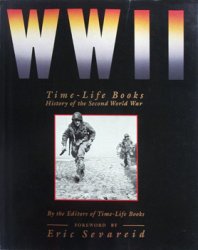The Taft administration felt that Madero would reverse Diaz’s pro-British policy and thus quickly extended recognition to his government. When the Orozco revolt broke out, Taft offered to let Madero transport troops across Texas by rail. On March 14, 1912, to cut off the supply of arms to Orozco, Taft embargoed the shipment of arms to Mexico. Two weeks later, when it became obvious that this hurt Madero, Taft exempted Madero’s government from the embargo. Madero took advantage of this exemption to buy guns, ammunition, and two observation planes for General Huerta to use against Orozco. This U. S. support for Madero, which reflected a fear of generalized violence in Mexico, forced Orozco to shift from fielding a regular army that threatened Mexico City to guerrilla warfare.11
The honeymoon between the United States and Madero ended after it became apparent that Madero could not quickly suppress the Orozco and Zapata uprisings. This called into question Madero’s ability to maintain law and order. Ambassador Wilson was especially shrill in his condemnation of Madero, since he felt not only that Madero was unable to maintain order but also that he was a naive dreamer. Wilson felt Madero’s advocacy of democracy demonstrated naivete in a country where, as he noted, “80 per cent. of the population is Indian, unable to read or write, with no ideas of citizenship or notions of constitutional government.”12
In June 1912, when Madero instituted a $0.015 per barrel tax on oil produced in Mexico, U. S.—Mexican relations took a turn for the worse. When Madero announced the new tax to finance the military effort against Orozco, oilmen became furious. They clamed the tax was confiscatory and equaled 17 percent of their profits. This was an outrageous lie, but it made good newspaper copy. The oil companies finally negotiated a lower tax rate.13
Madero also ordered the dismissal of U. S. railroad employees who did not speak Spanish. This, the oil tax, and Madero’s permitting trade union organization turned U. S. businessmen against him. After decades of Diaz’s accommodating attitude, the U. S. business community refused to accept any tinge of nationalism. This became self-defeating. As successive revolutionary leaders emerged, the United States came into conflict with each of them as they adopted nationalist policies.14
Late in 1912, the Taft administration, fearing that Madero would be unable to protect U. S. lives and property, sent warships to Mexican ports to protect American interests. Once the Mexican people saw the ships, they concluded that the U. S. government had given up on Madero.15
When Felix Di'az and Bernardo Reyes revolted against Madero, Ambassador Wilson’s actions reflected not U. S. policy but his personal opinion of Mexico’s president. During the stalemate between Felix Diaz and Madero’s forces, Ambassador Wilson did his best to discredit Madero and to turn the diplomatic corps and the U. S. government against him.16
On his own initiative, Ambassador Wilson arranged for General Huerta, still ostensibly fighting to preserve Madero’s presidency, to meet secretly with Felix Diaz in the U. S. embassy. There they signed the Pact of the Embassy, the agreement that Huerta would betray Madero, join Diaz, and become the provisional president.17
After helping arrange this unholy transfer of power, Ambassador Wilson informed Washington, “Our position here is stronger than ever.” He did not realize that, rather than restoring order, the coup he was involved in would lead to even more massive bloodshed.18
Wilson bragged of his intimate knowledge of the coup. He toasted to its success with Felix Diaz and declared: “This is the salvation of Mexico. From now on there will be peace, progress and wealth.” The day Madero and his vice-president were arrested, Wilson hosted a reception at the U. S. embassy attended by both Huerta and Diaz.19
While Huerta still held her husband prisoner, Sara Perez de Madero pleaded with Ambassador Wilson to intervene on her husband’s behalf. In his memoirs, Wilson noted that after meeting with Madero’s wife, he had told Huerta of his concern for Madero’s safety. However, in the cable Wilson sent to Secretary of State Philander Knox on February 19, 1913, he stated:
My advice as to whether it was best to send the ex-President out of the country or place him in a lunatic asylum was asked by General Huerta, to which I replied that that which was best for the peace of the country ought to be done by him.
Since Madero’s death, this response has been generally viewed as assent for his murder.20
Ambassador Wilson was one of the few to publicly accept the official version of Madero’s murder. He cabled the State Department two days after the killing, “I am disposed to accept the Government’s version of the affair and consider it a closed incident.”21
Despite the ensuing civil strife that cost hundreds of thousands of lives, Ambassador Wilson never had second thoughts. In his memoirs, he justified his role, claiming the coup “stopped further effusion of blood, allowed the population of the city to resume its usual peaceful occupations, and led finally to the creation of a provisional government which rapidly restored peace throughout the republic.”22
Mexicans do not remember Ambassador Wilson that way. Author Carlos Fuentes expressed the widely held Mexican view: “Madero respected free elections, a free press, and an uncontrolled Congress. Significantly, he was promptly overthrown by a conspiracy of the American ambassador, Henry Lane Wilson, and a group of reactionary generals.”23




 World History
World History









